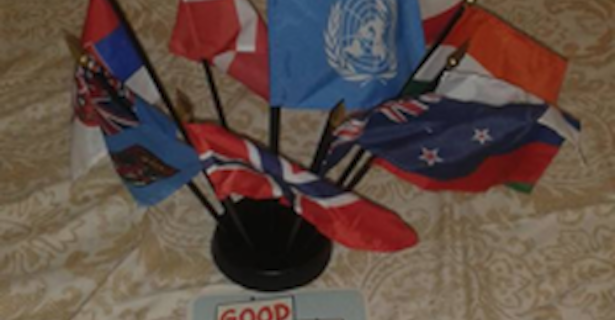Officially, I completed my internship with the Department of Peacekeeping Operations at the UN on 14 August. I was back in on Monday the 17th, though, because I happened to be there in what had become the busiest time of the year. I was interning with the Security Sector Reform (SSR) Unit, which is one of the five offices that form the Office of Rule of Law and Security Institutions (OROLSI) – and early in August, my unit was asked to prepare a briefing for the UN Security Council. The briefing was scheduled for 20th August, giving us barely three weeks’ notice.
This, I was told, is not a particularly uncommon occurrence. The post of President of the Security Council rotates from one member to the next on a monthly basis; the Council’s agenda for a given month is set by the Secretariat in consultation with the country that holds the Presidency in that month. Some topics on the agenda are known well in advance – for instance, debates on a peacekeeping mission’s mandate typically take place in the month before the existing mandate elapses – but others are very much at the discretion of the President.
This system is designed to let countries draw attention to issues they consider a priority when they have the Presidency. Nigeria, which took over the Presidency in August, decided that they wanted to highlight the subject of security sector reform – UN engagement with countries on developing national security strategy and implementing national security policy – by arranging for briefings by senior UN staff working on the area. My unit was then tasked to work on the briefing that would be delivered by Mr. Dmitry Titov, the Under-Secretary-General for Rule of Law and Security Institutions (aka the boss of my boss).
The last two weeks of my internship were thus split between completing my own research, which looked at instances of peacekeeping missions’ interaction with non-state actors and community-centric security arrangements, and compiling data on completed security sector reform projects in various countries, which formed the background material for the briefing.
The most exciting part came in the last few days, when I got to review and work on a draft of the speech to be delivered at the briefing itself. I worked as a speechwriter before grad school, for an Indian Member of Parliament who had a long previous career with the UN, so it was particularly fascinating to work on a speech in my former boss’ former institution.
Unfortunately, I had to leave New York the day before the briefing itself; I still watched it, though since it was telecast live via UN TV. There is a thrill that perhaps only we speechwriters know, when a line you worked on – or are particularly proud of – is delivered to a broader audience. In this case, that audience was the UN Security Council, and whoever was tuned in to their deliberations: truly one of the highest stages at which to hear your words spoken. I’d have been particularly delighted to have watched it in person, but it was a happy moment nonetheless.
The summer gave me an unprecedented chance to work on topics related to my thesis research, in an organisation as fast-paced and relevant as the UN, and the briefing provided an excellent sign-off. I am very grateful for having had the opportunity to work with my team, and for the grants that supported me in New York.


Add new comment